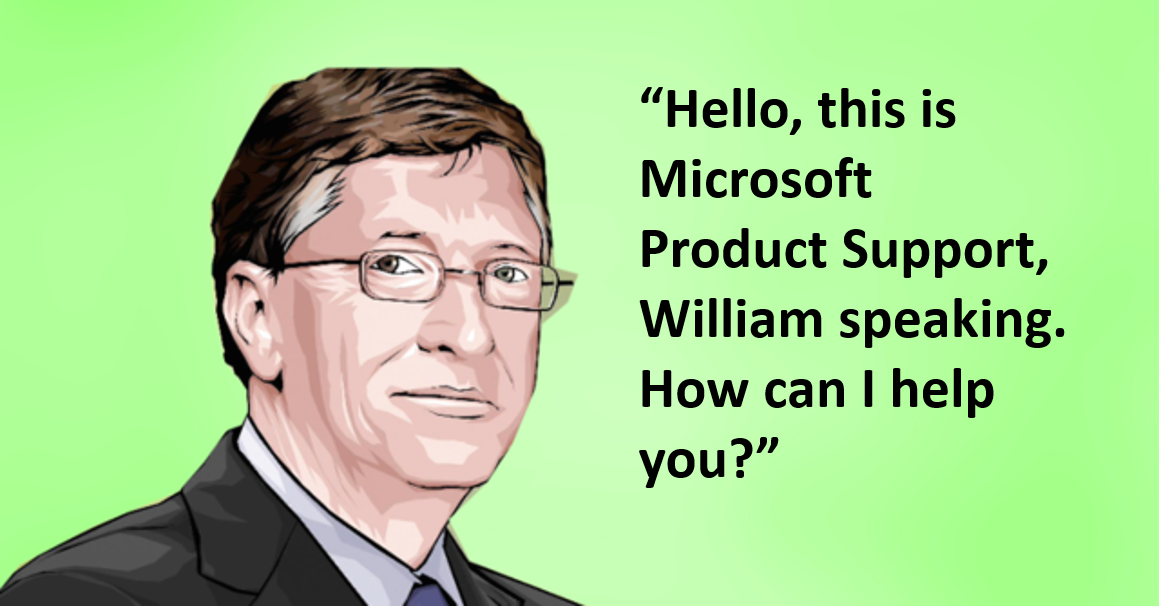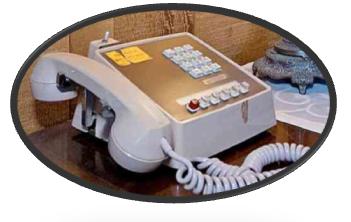
In tech circles, there’s a famous story about how one day back in 1989, Bill Gates donned a headset and took a support center call from a Microsoft customer.
“Hello, this is Microsoft Product Support, William speaking. How can I help you?” is the way Gates started what has now become a legendary moment in company circles.
A recent article in Entrepreneur by Gene Marks, president of The Marks Group, recounts that story, and reinforces the importance of connecting with your customers – even if you’re the head honcho in the corner office.
Jacobs Media and jacapps are B2B businesses, so I’m not interacting with members of the public. But if you work in a radio station, the thousands of listeners who tune in to your station each week can become as anonymous and impersonal as Nielsen rating digit and decimal points.
But when I was a program director, I would occasionally walk into the news studio through the glass of the main studio and start answering phones. It wasn’t always pretty, but it offered me personal, in-your-face contact with the people who could make or break the radio station
Aside from giving me a better idea of what was on the collective mind of the audience, it was a way to better understand what the airstaff endures each and every day. I always encourage personalities to answer their phones, but I remember too well that an intensely mean, annoying, or irrational person on the other end of the phone could ruin an entire day – if you let them get to you.
At WRIF, we did a Sunday night talk show – “Night Call” – for decades. About twice a year, I hosted an “Ask the Program Director” show – a chance for the audience to call me and ask questions about the station, the music, contests, or anything else on their minds.
The first time I did it (I took all the calls, Michael Collins was in the studio with me directing traffic), it was a harrowing experience. But I learned early on that I  had more knowledge than anyone calling about the station. And even better, when an occasional negative or highly critical call came in, the next several callers were supportive and defended the station.
had more knowledge than anyone calling about the station. And even better, when an occasional negative or highly critical call came in, the next several callers were supportive and defended the station.
A lot of the questions were along the lines of “Why do you guys play the same three Queen songs?” but the fact the program director took their calls was often more than enough to satisfy even the most emotional and angry callers.
The germ of the idea for doing this went back to the years when I lived in Cedar Rapids, Iowa, working for the legendary research firm, Frank Magid and Associates. KCRG-TV was one of the local affiliates in town, and on a periodic basis, they trotted out their entire management team, put them on stage, and took questions from their viewers.
Imagine – the news director, station manager, chief engineer, public affairs director, and others sitting on chairs in a stark studio answering audience questions. Technically, it wasn’t great TV, and I don’t know what kind of ratings it earned. But for me, it was riveting, and appeared to be a great way for that local TV management to connect with their viewing audience in a meaningful, unique, and memorable way.
As our audience measurement tools become more sophisticated and our ability to precisely pinpoint meters and diaries improves, it’s easy to spend even more time staring at charts, graphs, spreadsheets, and meter counts.
Taking the time to review your audience’s Facebook page or Twitter feed, and answering the station phones can be painful at times, but these processes are certainly real. And while the terms “authenticity” and “transparency” get thrown around a lot, connecting directly with people can be educational, eye-opening, and insightful.
As for Gates, the story goes that he nailed that call. And in fact, the same customer called back a short time later to compliment that nice tech support person, William.
CEOs and COOs visit their stations all the time, meeting with the management team and staff members. A 15 minute side trip to the studio to take a phone call or two might prove to be even more educational.
Connect with your audience. You’ll learn something about them. And very likely, a lot about your brand.
Thanks, Mike Stern.
- What Is It With Female Robot DJs? - April 30, 2025
- Why “Dance With Those Who Brung You” Should Be Radio’s Operating Philosophy In 2025 - April 29, 2025
- The Exponential Value of Nurturing Radio Superfans - April 28, 2025




I did Ask the Program Director several times on 105.5 The Bridge in Charleston.
It was interesting…We promoted it for 10 days in advance. I took the calls and answered their questions.
Toward the end I’d usually invite one of our record reps in to make the pitch for their new record. They would give the same pitch to me on the air as they would off and I’d make them back up and explain any jargon.
People seemed to appreciate that I would take the time and take their questions. And pulling back the curtain on some of the new music let them be a part of the club too.
Social and digital are much the same.
It’s easy to be in the Internet Tough Man club when you think no one is on the other end of the line, but when you come back and show an interest in what the problem is and why the station makes the decisions it makes…It takes them off their high horse and you can learn something from them.
Won’t happen every time as I’ve had to tell a few people…Sorry we disagree…but it works a lot for me.
It’s always an eye-opening experience. But I think you’re right that there’s value in showing an interest in your listeners and their concerns. Thanks for the comment, Mike.
Just read the great phones blog and it reminded me of what my friend Buzz Bennett told me when he was in Minneapolis in the mid 70’s programming KDWB-AM. So he could get a better idea of what adults wanted to hear in addition to the 6-17’s who flooded his phone lines he had 16 request lines installed and had the jocks answer the phones in reverse order. This of course was years before call out research and other audience research testing. Buzz was kind enough to send me a great composite of 63/KDWB along with his famous “sounds like a bleep t-shirt back then. Unforrtunately both got washed away with Hurricane Katrina !
The great programmers from the past who didn’t have the tools we have today used their most important assets – their ears and their instincts. Thanks for the great story, John.